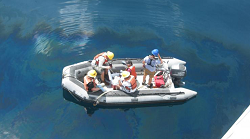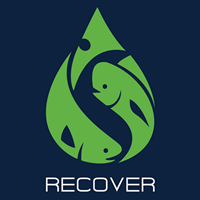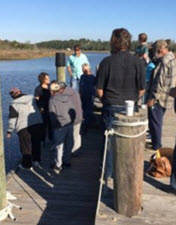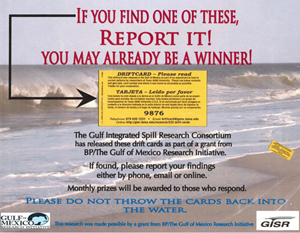Category Archives: Citizen Science
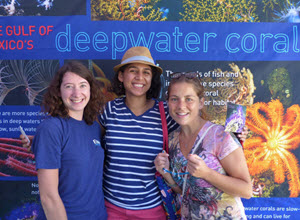
Scientists and education staff have tapped into a novel venue – football games – to reach new audiences and share ongoing research and ocean technology. The research consortium Ecosystem Impacts of Oil and Gas Inputs to the Gulf II (ECOGIG II), funded by the Gulf of Mexico Research Initiative (GoMRI), took their mobile Ocean Discovery Read More

The Dispersion Research on Oil: Physics and Plankton Studies (DROPPS) Consortium had another successful collaboration with the Consortium for Advanced Research on Transport of Hydrocarbon in the Environment (CARTHE) for the UT Summer Science program! We taught 3rd-4th graders about how oil spill scientists sometimes use drift cards to study oil spills to see where Read More

The Spring Boy Scouts Advance-A-Rama (AAR) program has been conducted for over 25 years by volunteers from the Northeast Georgia Council’s Cherokee District. The AAR is hosted by the Warnell School of Forestry and Natural Resources at the University of Georgia. In recent years, over 200 scouts from troops in Alabama, Georgia, South Carolina, and Read More
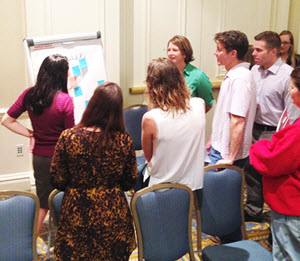
The four Sea Grant Programs in the Gulf of Mexico region, the Gulf of Mexico Research Initiative, and the Consortium for Ocean Leadership jointly co-hosted an outreach workshop at the 2016 Gulf of Mexico Oil Spill and Ecosystem Science conference on February 1 in Tampa, FL, called Sharing Oil Spill Science with Non-Scientists: Effectively Communicating Read More
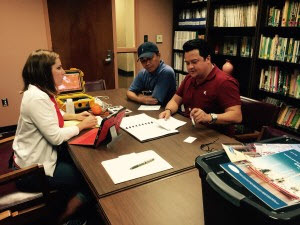
While Consortium for oil spill exposure pathways in Coastal River-Dominated Ecosystems (CONCORDE) researchers sampled the northern Gulf to determine the paths and impacts of river outflow, a pair of citizen scientists, also commercial fishers, assisted from their own vessels. Hoang Nguyen Van of D’Iberville, Mississippi, and George Barisich of Ycloskey, Louisiana—Captain Nguyen and Captain George—took Read More

The Alabama Center for Ecological Resilience (ACER) Teacher Advisory Group is a team of local science teachers who will work with the consortium’s Educational Team to increase students’ interest in and understanding of the northern Gulf of Mexico. More Information: http://acer.disl.org/news/2016/02/02/working-with-the-experts/ The goals of ACER’s Education Team include communicating the importance of the northern Gulf of Mexico and Read More

Alek stands next to a map of his research area, holding the drift cards he used in his oil spill study in front of a nautical chart of the Salish Sea. (Provided by Alek) Fueled by a passion for science and endangered species, Alek designed and executed a research project that involved scientists from eight Read More
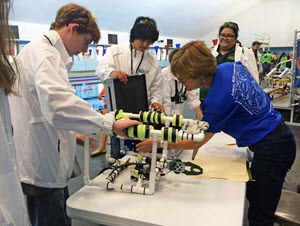
As science, technology, engineering, and math (STEM) skills become increasingly important to the 21st century workforce, what better way to foster those skills in middle and high school students than an old-fashioned friendly competition? Over the past four years, the Deep Sea to Coast Connectivity in the Eastern Gulf of Mexico (Deep-C) consortium and the Read More

A fourth grade class at Singapore American School found Bob the Drifter and the CARTHE science group while researching ocean science and pollution online. CARTHE’s drifter experiments, GLAD and SCOPE, are helping scientists understand how ocean surface currents move pollutants such as oil. CARTHE’s visually-engaging experiments and their animated, data-gathering mascot “Bob” motivated these young students Read More
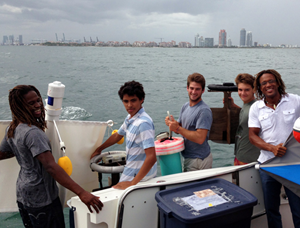
What do the Consortium for Advanced Research on Marine Mammal Health Assessment (CARTHE), the International SeaKeepers Society, and Fleet Miami have in common? Ocean research! Last September, CARTHE researchers from the University of Miami Rosenstiel School partnered with SeaKeepers and Fleet Miami to widen the reach of ocean and oil spill research in the local Read More
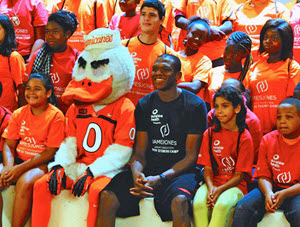
NBA Champion James Jones took the stage for young fans this July, but not to talk about sports. Instead, his goal was to get kids excited about cutting-edge science happening in their home town. Over 40 kids participated in his week-long Crew 22 Training Camp hosted by the University of Miami Rosenstiel School of Marine Read More
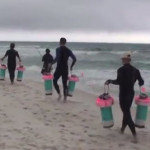
Scientists from the University of Miami have been visiting our area for the last three weeks studying the movements of ocean currents along the coast in order to observe how they carry oil, fish larvae or toxins in the water. On this particular day, 7th grade science students from Episcopal Day School in Pensacola were Read More
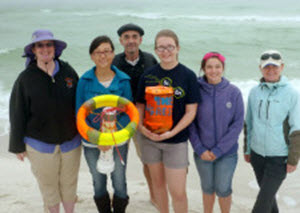
It was a tall order, but high school students rose to the challenge: they integrated physics, engineering, and scientific curiosity and created functional data-gathering drifters. They also became part of a scientific effort to improve predictions of how oil moves through coastal waters and onto shores. In December at Ft. Walton Beach, Florida, scientists deployed Read More
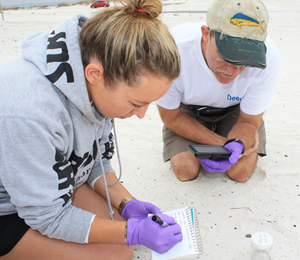
Talk about compounding interest! Put together scientists and teachers who are passionate about their work with students who are eager to help with ongoing research and watch as excitement fuels student engagement, sparks career interest, and feeds enthusiasm of all. And as a side bonus, research is conducted more efficiently in both time and cost. Read More
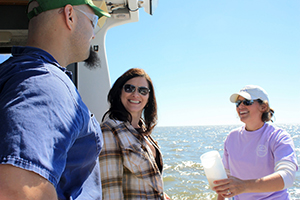
An old philosophical question asks, “If a tree falls in a forest and no one is around to hear it, does it make a sound?” Similarly, if a scientist makes an important discovery and people do not hear about it, will it matter? Scientists are conducting research about oil and other impacts on coastal marine Read More
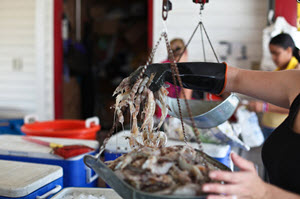
Many people outside of the Gulf Coast region are not aware of the large population of Vietnamese residents who live across this area, in concentrated communities from Texas to Alabama. Arriving as refugees during and after the Vietnam War, they settled along the Gulf Coast to work in the booming commercial fishing industry. Today, the Read More
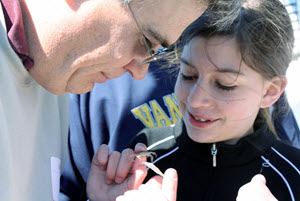
“My mom would love this boat ride.” “I wish my child could walk the marshes.” Murt Conover, Senior Marine Educator and Aquarist with the Coastal Waters Consortium (CWC), often hears comments like these when leading teacher and student groups at the Louisiana Universities Marine Consortium (LUMCON) facility. She thought it seemed like a “no brainer” Read More
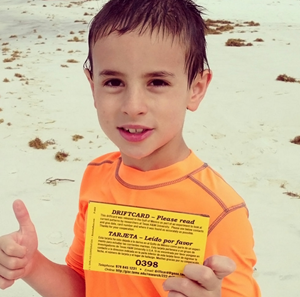
Summer fun check list: 1. enjoy the sun, sand, and surf along the beautiful Gulf of Mexico; 2. track ocean currents; and 3. win a prize. Track ocean currents? Win a prize? Yes! Adults and children from Florida to Texas are calling, emailing, and going online to report little yellow cards they find in the Read More
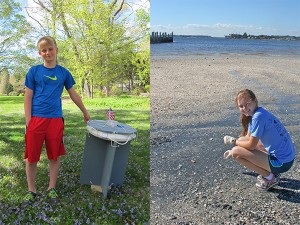
Scientists conducting GoMRI-funded oil spill research take their mission regarding society seriously: They employ cutting-edge technology to collect and analyze data using rigorous scientific parameters and publish their findings. But there are other ways these researchers define success, like working with students. When young students seek answers to scientific questions and contact them, these scientists Read More

